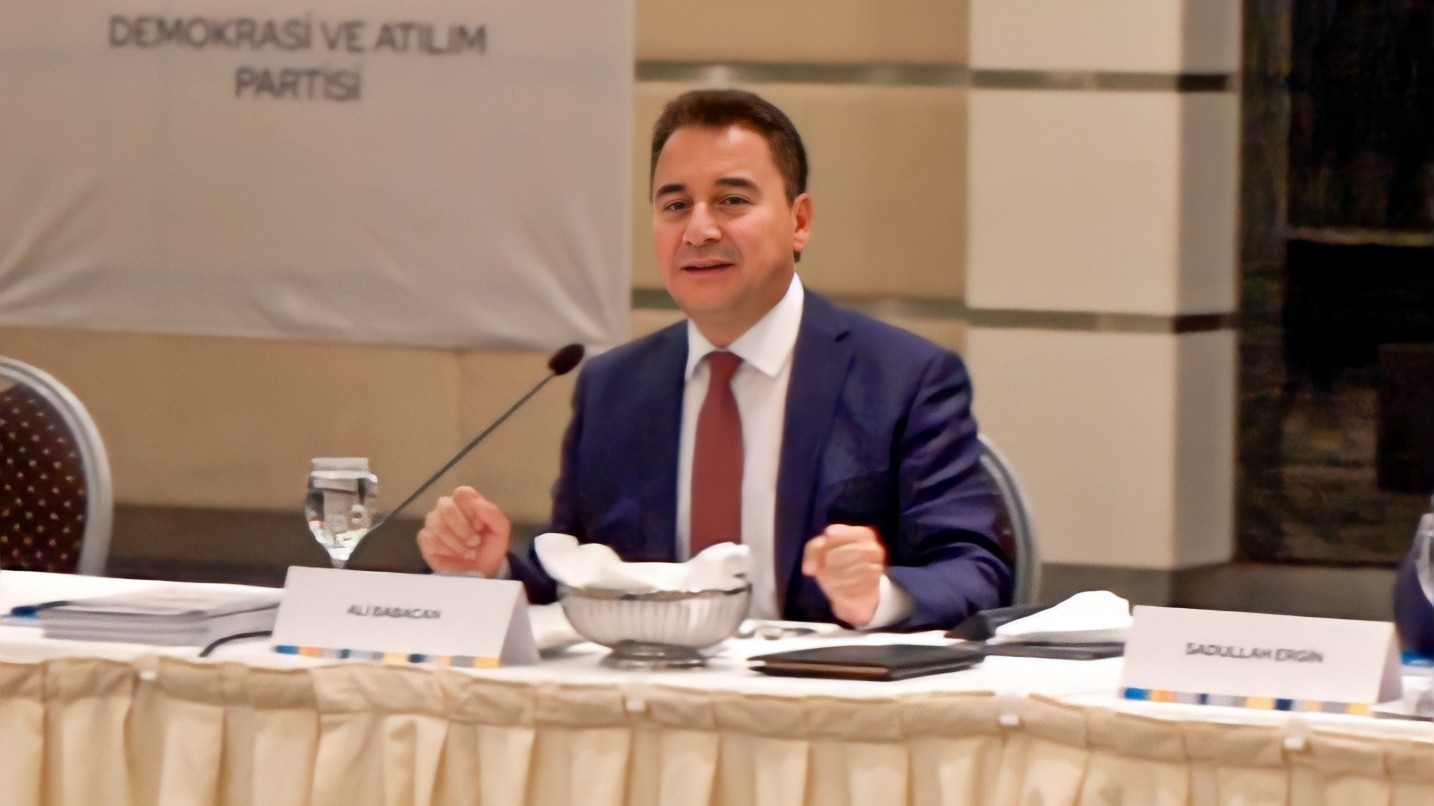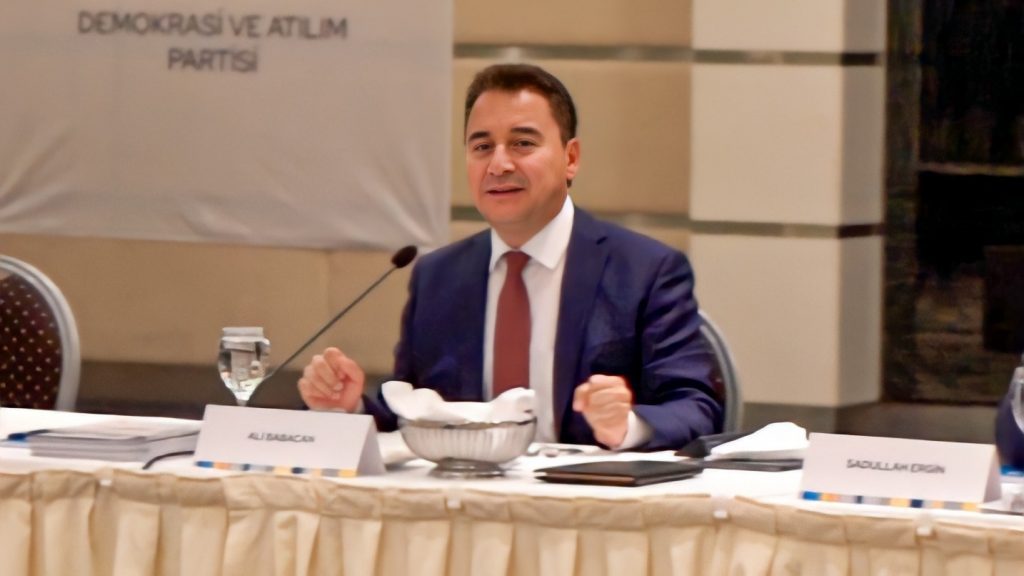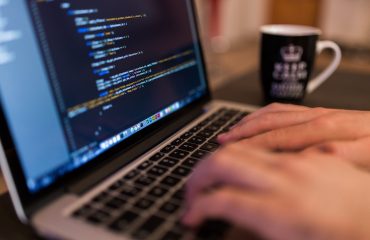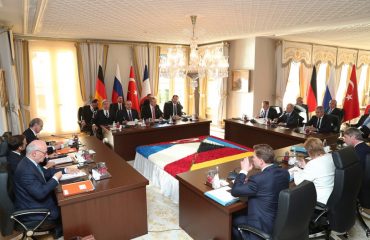

Ali Babacan, the leader of DEVA Party, one of the parties in the Six-Party-Alliance for the upcomming elections stated that the parties in the alliance are rival to each other however in the following period, the real rival is President Erdoğan. “Once we beat him, we will continue from there,” he said. (Photo: DEVA)
“All six parties are rivals, but the real rivalry is with the other side,” DEVA Party Leader Ali Babacan said on Oct. 3, at the press dinner in Ankara.
The leader of one of the six parties that formed an alliance against President Tayyip Erdoğan and his ruling Justice and Development Party (AKP) in the upcoming critical elections said that the main rival of this “table of six parties” is obviously Erdoğan.
At the same hours, main opposition Republican People’s Party (CHP) leader Kemal Kılıçdaroğlu made a statement that his party would submit a draft law to the parliament on Oct. 4 to lift the headscarf ban in public offices in a video posted on his social media account. Immediately the question was conveyed to Babacan in the press conference.
“There is no legal obstacle in using headscarves in public offices, however, there is a de facto ban,” he said. Kılıçdaroğlu’s move was rather new, he said, “I don’t know the details”. Then he gave the floor to Vice President Mustafa Yeneroğlu, who said “They may have chosen to make this move thinking that the government would exploit the issue in the following election period”. In translation, he meant Erdoğan’s propaganda argument: “If I go, the headscarf will be banned again”.
The other parties on the table of six also supported Kılıçdaroğlu’s attempt to block Erdoğan’s way. As Kılıçdaroğlu was saying that this will be a “litmus paper”, MHP leader Devlet Bahçeli was the first power bloc leader to announce that they would vote against that draft bill.
The main rival and Babacan
Could the “main rival” have lost an important weapon? As a matter of fact, AKP Spokesperson Ömer Çelik announced on the morning of Oct. 4 that Erdoğan will make a “historic” speech on these issues on Oct. 6. CHP Spokesperson Faik Öztrak also replied to him, “Come on, let’s go to the election now”.
Was there an information leak from the AKP, after the bureaucracy, to the CHP and the table of six in general? Or did Erdoğan and the AKP started to expose their election propaganda tactics badly, and the opposition started to move forward?
In any case, while Erdoğan was in a metro snatch race with Mayor Ekrem İmamoğlu in Istanbul, Kılıçdaroğlu and his alliance partners in Ankara weakened his important electoral trump card.
According to Babacan, “The government sees that this process is coming to an end and that they are leaving”, so he became irritable and made mistakes.
But this does not mean that things will be easy. The six parties were rivals to each other, coming from different backgrounds; but instead of arguing over the past, they should have looked for a way of “agreeing in the future”.
Why not leave things to the second round?
That’s why Babacan was saying, “We have to win in the first round” of the presidential elections which requires receiving more than 50 percent of the votes to elect a president.
Between the June 7 elections and the Nov. 1 elections in 2015, “was a period of turmoil,” he said, adding that “lessons should be learned from this and act cautiously”.
“The governments that realized that they would lose power were sometimes doing wrong things, as the examples from around the world showed,” he said.
Therefore, even though they are basically rivals, the Table of Six components “should not forget that the main rival is Erdoğan”.
Babacan was asked about the tension between the CHP and the IYI Party in the last few weeks: Was it discussed at the October 2 meeting?
“It was spoken briefly,” said Babacan. First of all, from now on, what the party headquarters and chairman of the party said will be taken as a basis, not what any party members said about each other. However, they had decided to call each other immediately on their cell phones in order to “avoid misunderstandings”. They would meet more often, but they didn’t put it on a schedule.
“It will be a great honour”
A journalist asked Babacan a question on the Transition Process Roadmap, which he attaches great importance to. Yes, the presidential candidate of the Table of Six would have agreed on this roadmap and therefore not play personally. But what if that person didn’t keep his word?
Babacan responded with the self-confidence that is rare in Turkish politics: why would anyone want to break this partnership?
“It will be a great honour for the Six Parties to solve the problems of this country,” he said; “We will tell our children and grandchildren in the future”.
Let me end with an observation: Babacan seems to have mastered the issues in detail. If there is a detail he is hesitant about, he immediately asks his assistants for information, and instead of taking notes, they immediately receive and transfer information over the phone. This is an example of discipline and hard work that we do not see much in Turkish politics.
In summary, it was quite turbulent before the Table of Six October 2 meeting, but it seems that the waters have calmed down and the mess has started to cleaned up.
The opposition alliance resumed talks: “We will win” but “how?”


